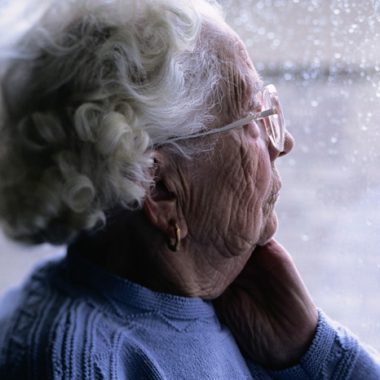Prime Minister’s GP dementia diagnosis drive increased ‘false alarms’ by 150%

Exclusive The Prime Minister’s drive to ramp up the number of patients GPs screen for dementia has led to thousands more elderly people wrongly suspecting they may have the condition, a Pulse investigation has revealed.
Data obtained from hospital trusts showed that the proportion of people without dementia referred to memory clinics jumped over 150% after the introduction of NHS targets for diagnosis.
The Government has hailed the campaign’s success in increasing dementia diagnosis rates, but leading GP experts have warned the rise in ‘false alarms’ means many older people and their families have been put through unnecessary anxiety, waiting three months for the all-clear.
The Prime Minister’s Challenge launched in 2012 set out a plan to ramp up the diagnosis rate so two-thirds of the estimated 670,000 people living with dementia in England would get a formal diagnosis.
GPs were singled out for criticism for the low diagnosis rate and pushed to join in the diagnosis drive, with controversial incentives – such as the ‘dementia DES’ promoting screening for dementia and the temporary scheme offering £55 for each new dementia diagnosis last year.
Pulse’s data – obtained through Freedom of Information requests – showed that GP referrals into memory services at 11 trusts increased from just over 10,000 in 2011/12 to over 22,000 in 2014/15.
The number of correct dementia diagnoses rose by 87%, but this was accompanied by an 152% rise in the number of referred patients that were not diagnosed with dementia.
They also showed the average waiting time for assessment was 11 weeks last year, way above the Government target of six weeks.
Some areas should particularly stark increases in people without dementia going through the system – in Norfolk and Suffolk, almost three-quarters of patients referred to memory clinics turned out to be ‘false alarms’ last year, up from around 50% in 2011/12.
Dr Tim Morton, chair of Norfolk and Waveney LMC and a GP in Suffolk, said GP practices in his area had experienced a ‘tsunami surge’ of patients worried about their memory after the Government campaign started.
Dr John Cosgrove, RCGP council member and a GP in Birmingham, who campaigned against incentives for dementia screening, warned it meant ‘there are a lot of people who are worried about their memory, whose anxiety is being reinforced from being referred to a memory clinic only to end up being reassured’.
Professor Steve Iliffe, emeritus professor of primary care for older people at the University College London, said: ‘Pulse’s figures are really quite alarming.’ He added: ‘Dementia is a tricky condition diagnostically so there is bound to be a risk of over-diagnosis – and more people may end up with the mild cognitive impairment label as well, which means that they will have to be followed up by someone, and will also have to live with a risk factor for dementia, even though most will not develop it.’
It comes as NHS England announced the controversial ‘dementia DES’ will be axed from the GP contract from April, which it said was ‘in recognition of the fact that GPs are more routinely diagnosing dementia’.
A Department of Health spokesperson said: ‘We have made huge improvements in the diagnosis rate. From 42% in 2010 to 67% today – our diagnosis rates are now among the best in the world. The Prime Minister’s 2020 Challenge will ensure that dementia care, awareness and research are transformed over the coming years, as we seek to defeat this disease.’
However, Dr Chaand Nagpaul, chair of the GPC, said the policy had been ‘deeply unpopular’ and that the latest findings reinforced the profession’s concerns.
Dr Nagpaul said: ‘We warned the Government that imposing a scheme designed to meet a political statistical target as an end in itself would distort clinical priorities and have an adverse impact both on the memory services and individual patients.’
The end of the dementia DES

Money coins 2700x1800px 1
The Government’s ‘deeply unpopular’ dementia DES will be scrapped from April, with the £42m price tag to be reinvested into core general practice.
The news, which formed part of last week’s 2016/17 GP contract announcement, puts an end to the scheme which increased the number of patients with a dementia diagnosis on practice lists by a quarter.
NHS England said the decision to end the scheme was ‘in recognition of the fact that GPs are more routinely diagnosis dementia’.
Pulse October survey
Take our July 2025 survey to potentially win £1.000 worth of tokens

Visit Pulse Reference for details on 140 symptoms, including easily searchable symptoms and categories, offering you a free platform to check symptoms and receive potential diagnoses during consultations.










